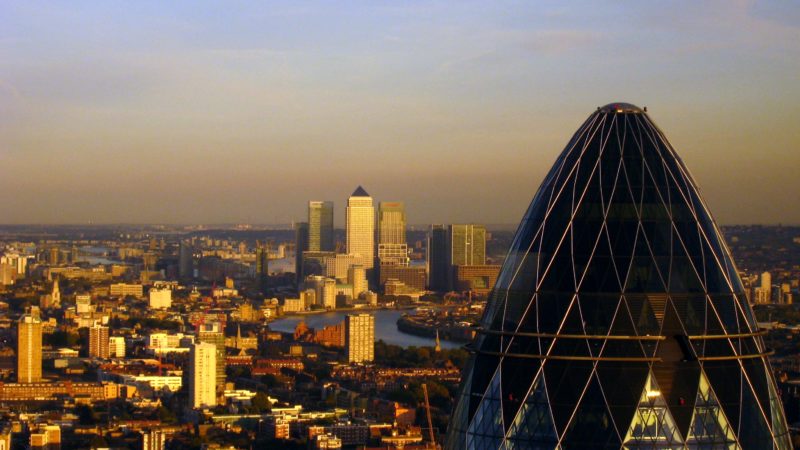How banks, accountants and toothless regulators are shielding fraudsters from accountability.

The long-awaited Russia report by the Intelligence and Security Committee of the UK Parliament has been published. It provides much food for thought on security matters and Russia’s influence on the UK’s institutions.
A key theme running through the report is that the easy mobility of capital, light-touch regulation and appeasement of the finance industry poses dangers to national security. This UK’s finance system provides “ideal mechanisms by which illicit finance could be recycled through what has been referred to as the London ‘laundromat’”.
Great for mobsters
The light-touch regulation for attracting footloose capital is all around us. Anyone from anywhere in the world can form a limited liability company in the UK with virtually no checks on the authenticity of directors or shareholders. Known and convicted mafia criminals have formed companies and banks with false names and addresses. A former minister for the business department told Parliament in 2017: “Companies House does not have powers to verify the authenticity of company directors, secretaries and registered office addresses”.
Shareholders do not have to reveal their true identity as plenty of accountants, lawyers and financial intermediaries rent themselves out as nominee shareholders. Ministers told Parliament that “The Government has no plans to introduce legislative proposals to prohibit nominee shareholdings”.
The light-touch regulatory regime is a magnet for dirty money, and problems are further compounded by shell companies operating from UK sponsored tax havens. At least £100bn worth of property in England and Wales is owned by anonymous companies registered in tax havens, often funded with dirty money. Full details of the beneficial property owners are not known. Despite critical reports from parliamentary committees, little has changed.
Complicit in laundering
Large sums of money cannot be moved or concealed without the active involvement of accountants, lawyers and other financial experts. The Russia report states that “Lawyers, accountants, estate agents and PR professionals have played a role, wittingly or unwittingly, in the extension of Russian influence which is often linked to promoting the nefarious interests of the Russian state”.
Accountancy firms have long been involved in illicit financial flows. A joint report by HM Treasury and the Home Office stated that “accountancy services remain attractive to criminals due to the ability to use them to gain legitimacy, create corporate structures or transfer value” and “some of those accountants involved in money laundering cases are assessed to be complicit or wilfully blind to money laundering risks”. Yet there is little effective regulation.
Too many toothless regulators
The UK’s fragmented and ineffective structure for dealing with money laundering has 25 regulators. These include the Financial Conduct Authority (FCA), HM Revenue and Customs (HMRC), the Gambling Commission and the 22 other bodies, including the Faculty Office of the Archbishop of Canterbury, accountancy and law trade associations.
There is little public scrutiny of these 22 regulators. They are outside the scope of the Freedom of Information legislation and show little interest in regulating their members. A report by the Office for Professional Body Anti-Money Laundering Supervision (OPBAS), housed within the FCA and created to co-ordinate the regulatory activities of the accountancy and law trade associations, concluded:
“The accountancy sector and many smaller professional bodies focus more on representing their members rather than robustly supervising standards. Partly because they don’t believe – or don’t want to believe – that there is any money laundering in their sector. Partly because they believe that their memberships will walk if they come under scrutiny … We were told, particularly in the accountancy sector, that professional bodies believed their members would leave if they took robust enforcement action.”
Yet government continues to indulge the accounting industry as mobility of capital and light-touch is its priority.
Shielding the fraudsters
Banks are central to illicit financial flows and the government response is to protect wrongdoers. A classic example is the Bank of Credit and Commercial International (BCCI), the site of money laundering and the biggest banking fraud of the twentieth century. In July 1991, it was forcibly closed down. To this day, there has been no independent UK investigation, even though a US Senate Committee report criticised the Bank of England and BCCI auditors for their role in the cover-up. After a five and half year legal battle I secured one document which showed that the UK government was complicit and went to enormous lengths to conceal the identities of the wrongdoers, all to ensure that money flowed to the City of London.
Little has changed. In 2012, HSBC was fined $1.9bn by US authorities for money laundering failures which enabled “drug kingpins and rogue nations” to launder vast amounts of money. The US revelations did not persuade the UK to mount an investigation. Instead, the then Chancellor George Osborne secretly wrote to the US authorities, urging them not to prosecute HSBC.
Security is not something that begins with intelligence agencies and armed forces. It begins with public accountability, erosion of corrosive secrecy and holding power to account. It necessarily involves checking capitalist impulses to make easy money. By failing to do so, successive governments have endangered national security. The Russia report is a wake-up call.
Prem Sikka is Professor of Accounting at University of Sheffield and Emeritus Professor of Accounting at University of Essex. He is a Contributing Editor to LFF and tweets here.
To reach hundreds of thousands of new readers we need to grow our donor base substantially.
That's why in 2024, we are seeking to generate 150 additional regular donors to support Left Foot Forward's work.
We still need another 117 people to donate to hit the target. You can help. Donate today.



